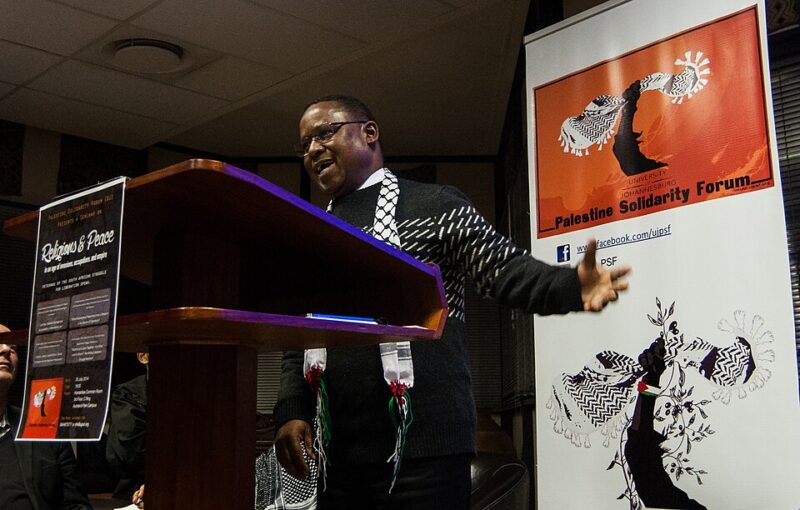Harlem to Hebron: the long history of Black solidarity with Palestinians
Share
Explore Our Galleries
Breaking News!
Today's news and culture by Black and other reporters in the Black and mainstream media.
Ways to Support ABHM?
By Nesrine Malik, The Guardian
A mutual alliance between oppressed people has been revived with Israel’s full-scale invasion of Gaza

“Our freedom will be incomplete without the freedom of the Palestinian people.” When Nelson Mandela spoke those words in 1997, it resonated deeply across much of the Black diaspora, which has long felt a strong kinship with the struggles of the Palestinian people. In this week’s Long Wave, as yet more journalists are killed in Gaza, and some western countries make belated moves to recognise a Palestinian state, I examine the history of that Black solidarity, and how it has endured.
Before that, some housekeeping: we’d love to know what you think of The Long Wave – what you’re enjoying, what you’re not and how we can improve. So if you can spare a few minutes, please fill out this short survey.
A Palestinian state was first declared by Yasser Arafat, the leader of the Palestinian Liberation Organisation, in 1988. Of the 84 countries that immediately recognised the new state, half were African or Caribbean countries. But statements of solidarity preceded recognition as the Palestinian issue was seen as emblematic of the struggles of so many postcolonial Black countries, and indeed that of Black emancipation movements in general.
The Black Panther Stokely Carmichael referred to Palestine as “the tip of Africa”. In a speech to the UN general assembly in 1994, Thomas Sankara, the president of Burkina Faso, said: “I think of the valiant Palestinian people, the families which have been splintered and split up and are wandering throughout the world seeking asylum. The Palestinians remind us all of the need and moral obligation to respect the rights of a people.”
Learn how anti-racist movements strengthen solidarity with the Palestinian people.
Ta-Nehisi Coates wrote about his experience on the West Bank.
Our breaking news section covers more social movements.









Comments Are Welcome
Note: We moderate submissions in order to create a space for meaningful dialogue, a space where museum visitors – adults and youth –– can exchange informed, thoughtful, and relevant comments that add value to our exhibits.
Racial slurs, personal attacks, obscenity, profanity, and SHOUTING do not meet the above standard. Such comments are posted in the exhibit Hateful Speech. Commercial promotions, impersonations, and incoherent comments likewise fail to meet our goals, so will not be posted. Submissions longer than 120 words will be shortened.
See our full Comments Policy here.